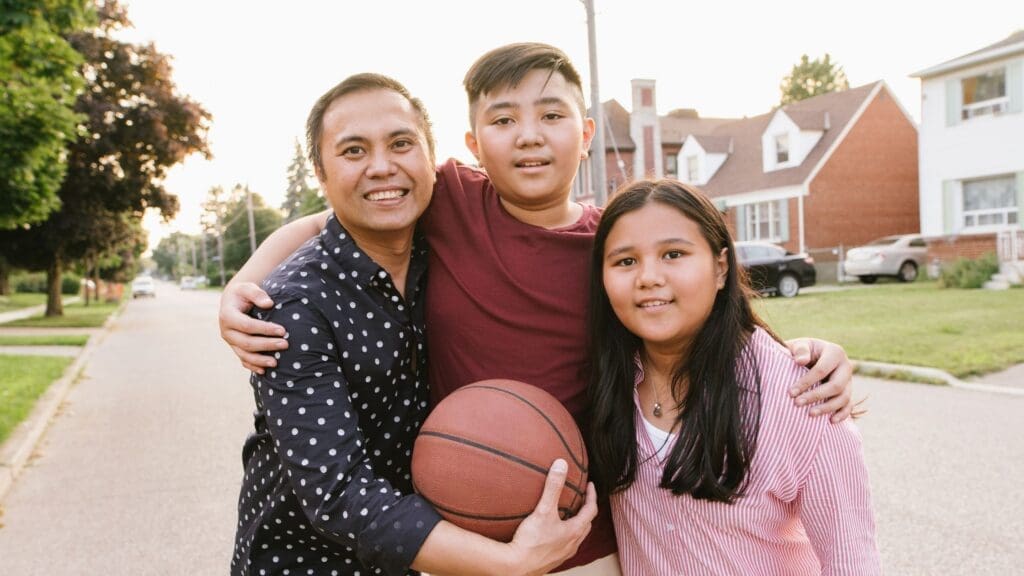Over the past few years, we’ve seen big changes in schools. Budgets are tight, academic pressure is high, and programs that support students’ emotional health are often the first to get cut. One of the areas hit hardest? Social and Emotional Learning (SEL). Yet the need for SEL has never been greater. What Is SEL? […]
If you’ve ever tried to sit your teen down for a “serious talk,” you know how quickly the walls can go up. Eye rolls, crossed arms, one-word answers. It’s not that they don’t want to connect — it’s that the format feels too intense. That’s where side-by-side conversations (sometimes called parallel talk) come in. Why […]
When it comes to supporting mental health, many therapies focus on exploring the past or analyzing patterns of thought. These can be helpful, but for people dealing with strong emotions in everyday life, sometimes what’s needed most is a set of practical tools that work right now. That’s where Dialectical Behavior Therapy (DBT) comes in. […]
Parenting in today’s fast-paced, high-stress world can feel overwhelming. With increasing academic pressures, social challenges, and emotional struggles, children need more than just academic skills to thrive—they need resilience. What Is Resilience? Resilience is the ability to:✔ Bounce back from adversity✔ Adapt to challenges✔ Grow from life’s obstacles The good news? Resilience is not just […]
Emotional intelligence (EI) is a powerful skill that helps children succeed in school, build strong relationships, and navigate life’s challenges with resilience. As parents, understanding EI and how to foster it at home can make a profound difference in your child’s emotional well-being. But what exactly is emotional intelligence, and why does it matter? What […]
As parents, we’ve all experienced moments when our child is completely overwhelmed by emotions. Whether it’s an explosive tantrum, an anxious meltdown, or a flood of tears, these moments can leave us feeling helpless and unsure of what to do. But here’s the truth: These big emotions aren’t just random outbursts—they’re deeply connected to the […]
Navigating Middle School Emotions: Summer Survival Guide for Parents As parents of middle schoolers, we’ve all witnessed those moments when our tween or young teen seems to transform before our eyes. One minute they’re chatting happily about their latest interest, and the next they’re slamming doors, experiencing an anxiety spiral, or dissolving into unexpected tears […]
Co-regulation is the process of managing emotions through interactions with others. It involves using supportive relationships to help someone regulate their emotional state, especially during times of stress or dysregulation. Unlike self-regulation, which relies on an individual’s ability to manage their own emotions, co-regulation depends on the presence and support of another person to help […]
In our fast-paced world, it’s never too early to start teaching children the skills they need to navigate their emotions and maintain a sense of calm. Introducing nervous system regulation and mindfulness practices to children as young as 2 years old can set the foundation for lifelong emotional resilience and coping skills. Here’s how you […]
In today’s fast-paced world, it’s easy to get overwhelmed and feel disconnected. The dorsal vagal state, responsible for the freeze or shutdown response, is a natural reaction to perceived threats. While this response can be beneficial in extreme situations, prolonged activation can lead to hypo-regulation, causing a range of physical and emotional symptoms. Understanding how […]
In our fast-paced world, many of us experience stress daily. This stress activates our sympathetic nervous system, responsible for the fight-or-flight response. While this response is crucial for survival, constant activation can lead to hyper-regulation, causing a range of physical and emotional symptoms. Understanding how to manage and come out of this hyper-regulated state is […]
In recent years, the terms “trauma-informed” and “somatic yoga” have become buzzwords in the wellness industry. Many yoga programs and teacher training courses claim to be trauma-informed, but what does this really mean? And how can we ensure that the yoga practices we offer are truly supportive for those who have experienced trauma? The Traditional […]











